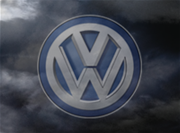 Exactly one year ago the automotive industry was shaken to its core, when it was uncovered that Volkswagen, one of the strongest brands in the world, had tampered with the emission levels on a major scale. The scandal concerned over 11 million diesel cars. A worldwide tidal wave of outrage resulted from the event. Today, however we are still mostly feeling the aftershock of the indirect results.
Exactly one year ago the automotive industry was shaken to its core, when it was uncovered that Volkswagen, one of the strongest brands in the world, had tampered with the emission levels on a major scale. The scandal concerned over 11 million diesel cars. A worldwide tidal wave of outrage resulted from the event. Today, however we are still mostly feeling the aftershock of the indirect results.
On September 18, 2015 the American Environmental Protection Agency (EPA) sent out a press release stating Volkswagen consciously defrauded the obligatory emission tests, by using software that recognizes the test environment and temporarily adjusting the motor control to decrease emission values. Or at least, that was the conclusion of a student lab in West-Virginia, a team of five that would unknowingly destabilise one the biggest car companies in the world.
Four days later Volkswagen succumbed under the pressure, after which Pandora’s box was opened and people started losing their jobs. Martin Winterkorn’s position as CEO proved to be untenable, the stock lost 40 percent of its value in the span of two days and the company was subjected to hundreds of damage claims that still hang over the car concern from Wolfsburg like a sword of Damocles. So far, shareholders have submitted 8.2 billion euro worth of damage claims.
That was then. Meanwhile the dark, polluted cloud covering the Dieselgate scandal is slowly subsiding, slowly revealing its true consequences. Let’s sum up some of the more noteworthy facts:
Consequences for public health
According to a study performed by the Radboud University in Nijmegen, between 2009 and 2015, Volkswagen emitted 526 kilotons of mono-nitrogen oxides (NOx) than legally allowed by the American and European overseers. Because the grand majority of the vehicles involved was sold in Europe and population density is higher here than in the US, the public health consequences for our continent are much more severe. The study ‘'Valuing the human health damage caused by the fraud of Volkswagen' published in the magazine ‘Environmental Pollution’ estimates the usage of the cheating software will cost Europe approximately 45,000 healthy years.
King Diesel is dead; or is he?
Since the 90s, the European automotive industry has strongly focused on developing diesel technology that stays in accordance with the European environmental standards. 40 percent of the cars sold within the European Union in 2014 had a diesel motor under their hoods. In some member states, public opinion was slowly turning against the dominance of King Diesel, a change in current that will only be reinforced by Dieselgate. European car manufacturers (including Volkswagen) are already anticipating this and showed off a lot of electric vehicles at the Paris Salon. Experts opine the diesel motor is in its death throes, although for now the car industry refuses to put the self-igniter to rest.
But what about policy makers? These are slowly starting to change course. Since recently, the French government awards a bonus of up to 10,000 euro to consumers who trade in their old diesel car for an electric vehicle, while the Islington borough in London has already increased the parking rates for diesels – with 96 pounds a year – as opposed to petrol cars.
Long wait for a real turning point
Dieselgate’s sudden eruption was actually the result of a problem that had been laying dormant in the car industry for a long while. Everyone was long aware of the fact that the existing consumption and emission tests – the NEDC (New European Driving Cycle) – were overdue for an overhaul. They started looking for a test that took real traffic conditions into account: the Real Driving Emission (RDE). Initially the European Commission had proposed a conformity factor of 1.6 (the maximum multiplication coefficient of NOx under real-life conditions as opposed to the Euro-6 standard, edtior’s note). As a result of this proposal, starting from 2017 emissions of diesel cars could not be higher than 128 mg NoX/km, or 1.6 times the 80 mg/km determined by the Euro-6 standard.
After Dieselgate, the European Commission decided rather quickly to impose much stricter standards for car manufacturers. The 1.6 coefficient got revised to 1.1875... but the European car lobby put up some strong resistance. In the Technical Committee Motor Vehicles (TCMV), the member states rejected the proposal by the European Commission and voiced their support for a 2.1 coefficient. This translates to 168 mg NOx/km, or twice the current Euro 6 standard. Additionally, members of the committee ‘dared’ to significantly increase the length of the transitional period. In 2017, the new emission standards will only apply to new models. Only from 2019 on, all new cars will have to meet the 168 mg requirement. The 1.5 (120 mg NOx/km) only starts applying in 2020 for new models (type-approval) and in 2021 for newly produced cars.
Impact for OPENLANE
For OPENLANE, Dieselgate has had a limited impact on sales numbers. The online car auction platform also does not see any impact in the short term on the residual value of used diesel cars.
Conclusion
Over the course of the past year, the consequences of Dieselgate were mostly in the realm of public opinion. People mainly became increasingly aware about environmentally friendly transportation. The manufacturers seem to have learned their lesson and are massively starting to jump on the alternative motors bandwagon. If only policy makers would want to co-operate, the cheating software scandal might strangely enough have a beneficial effect...